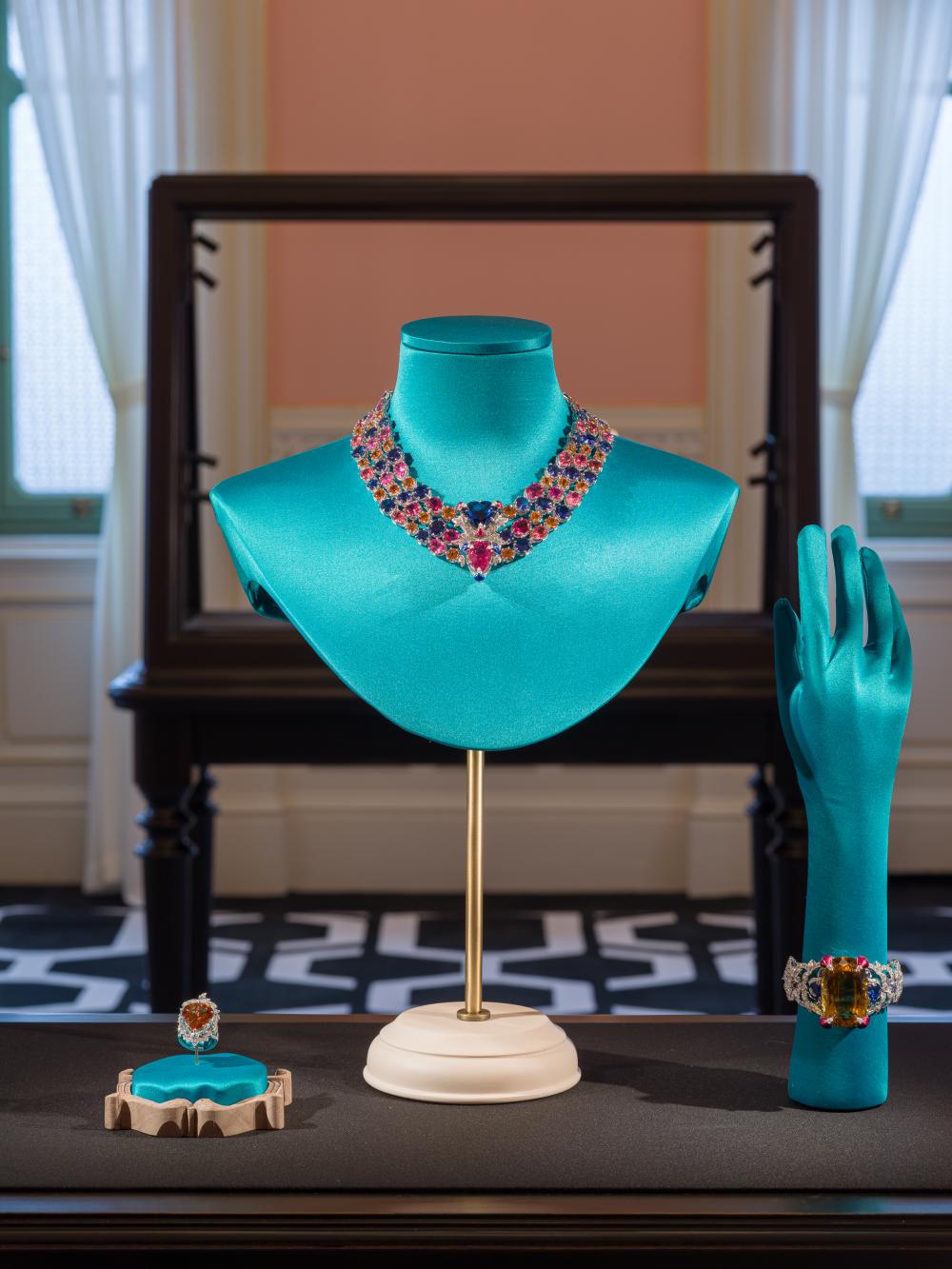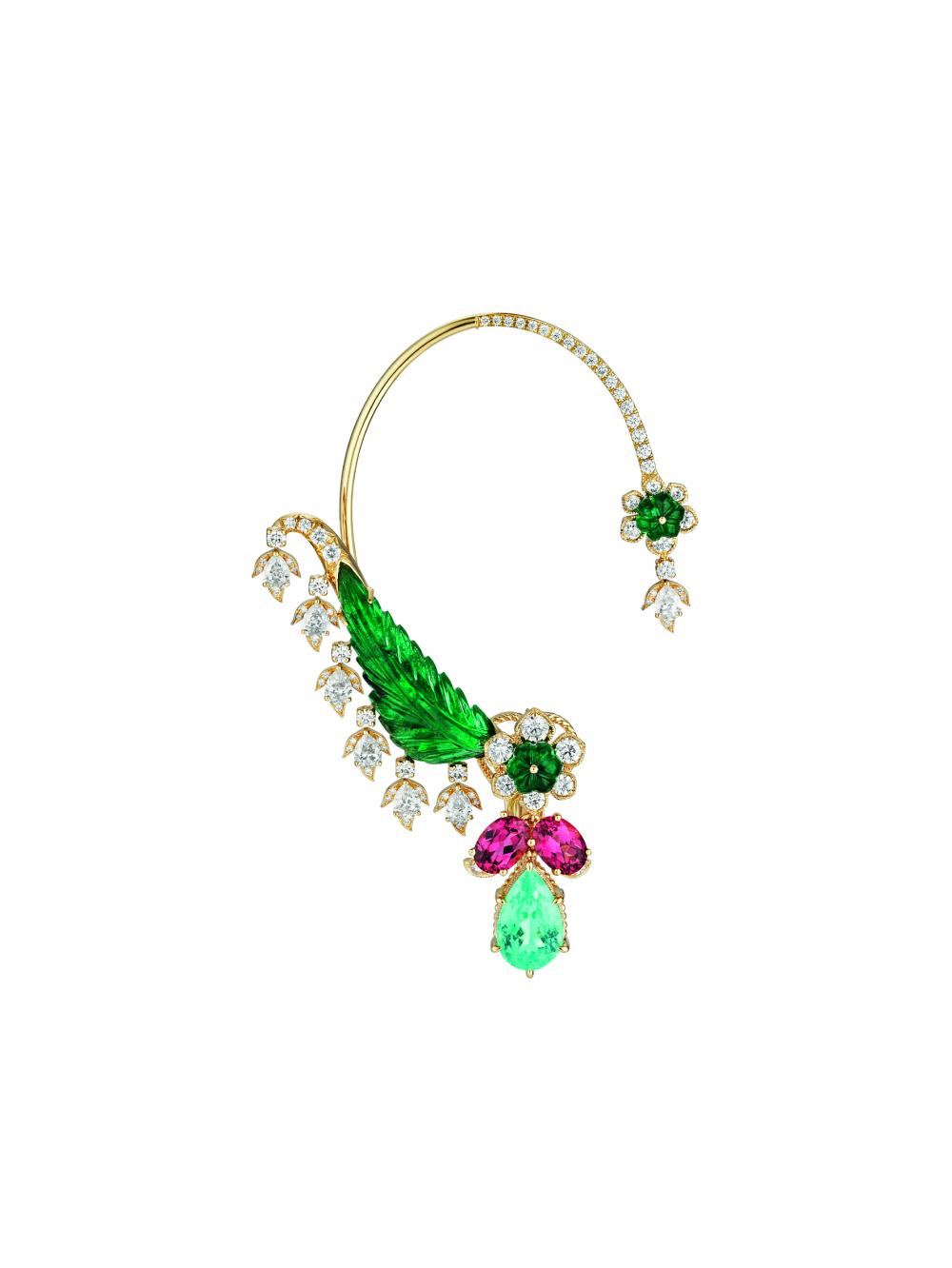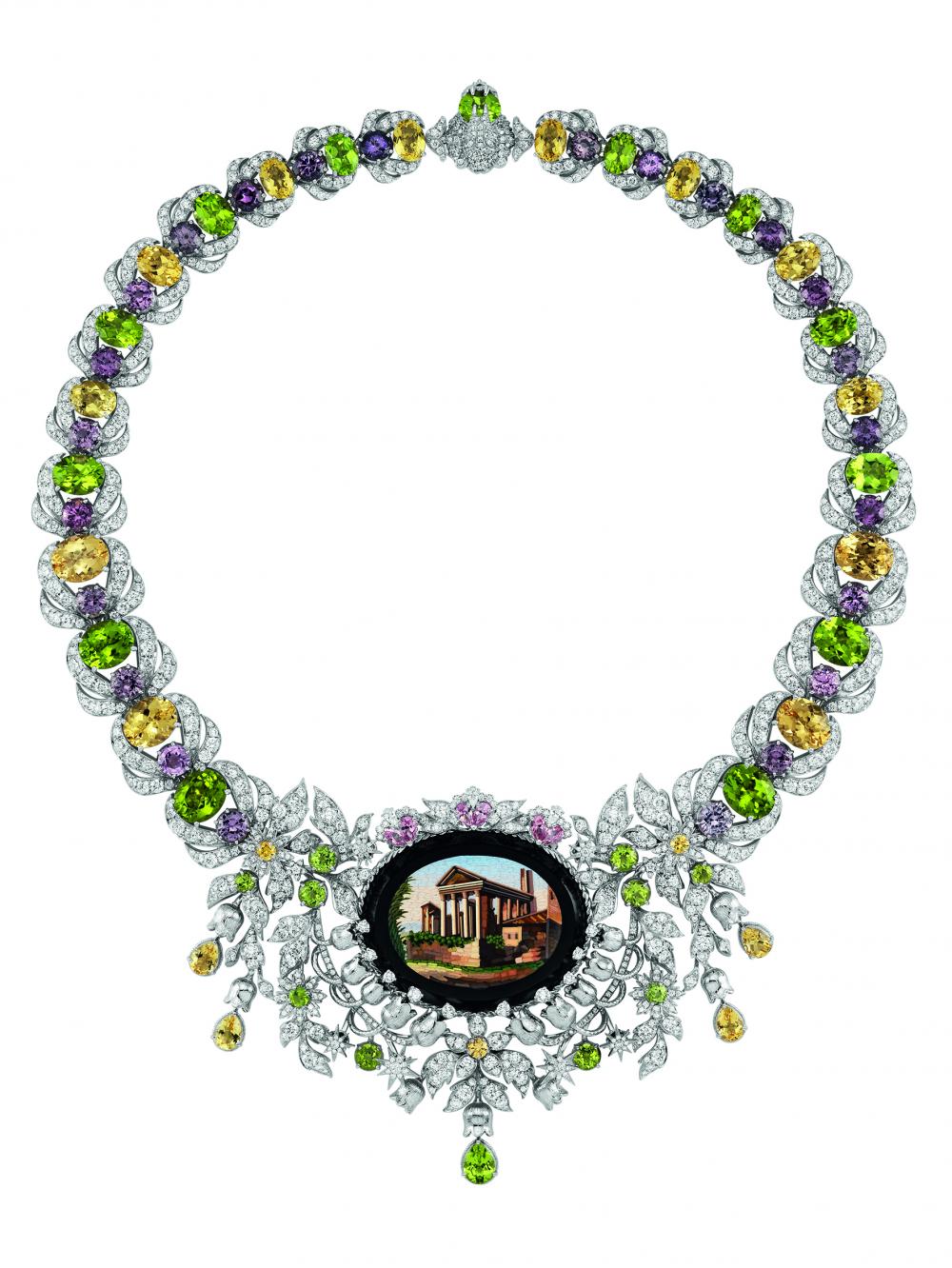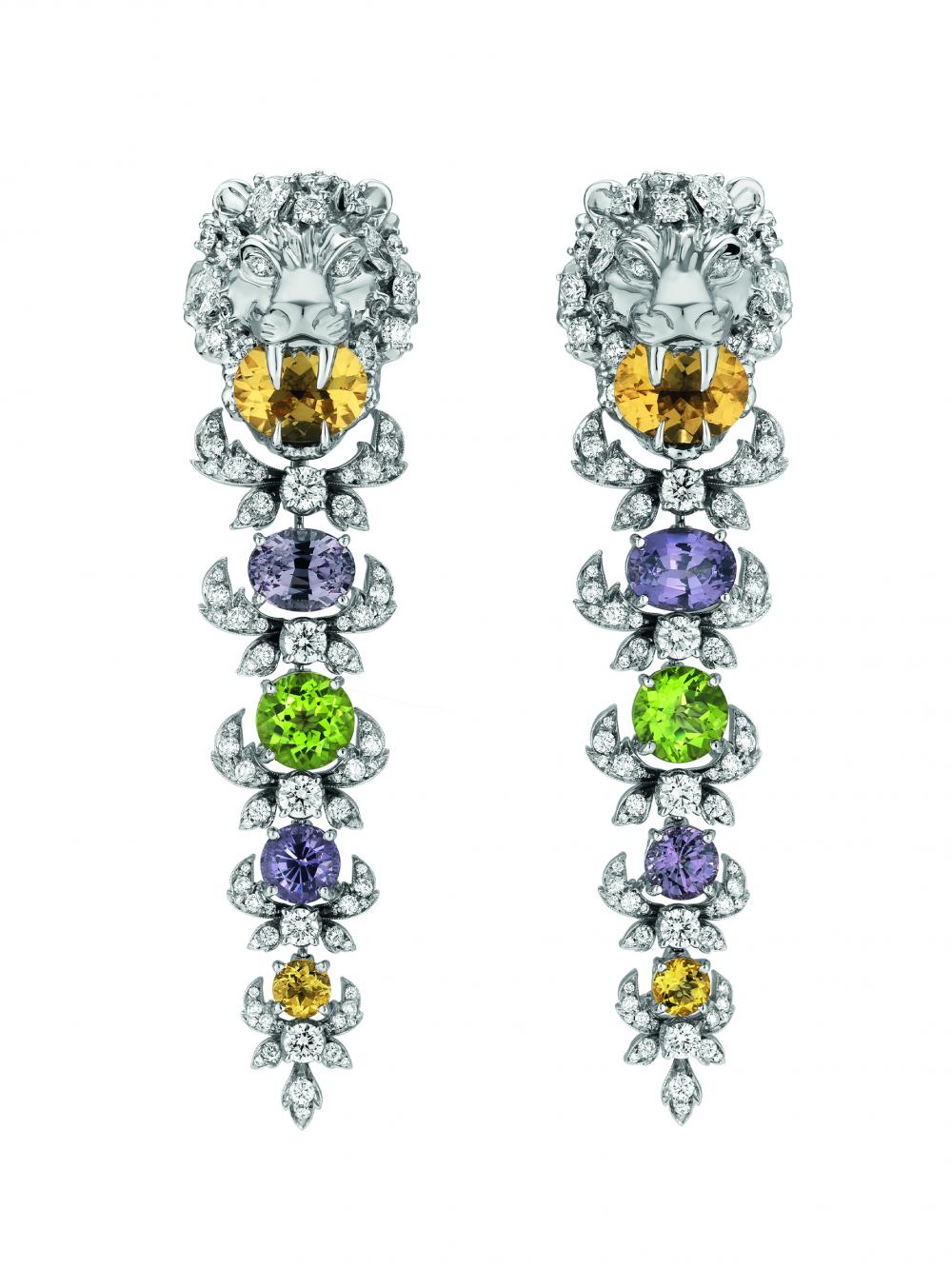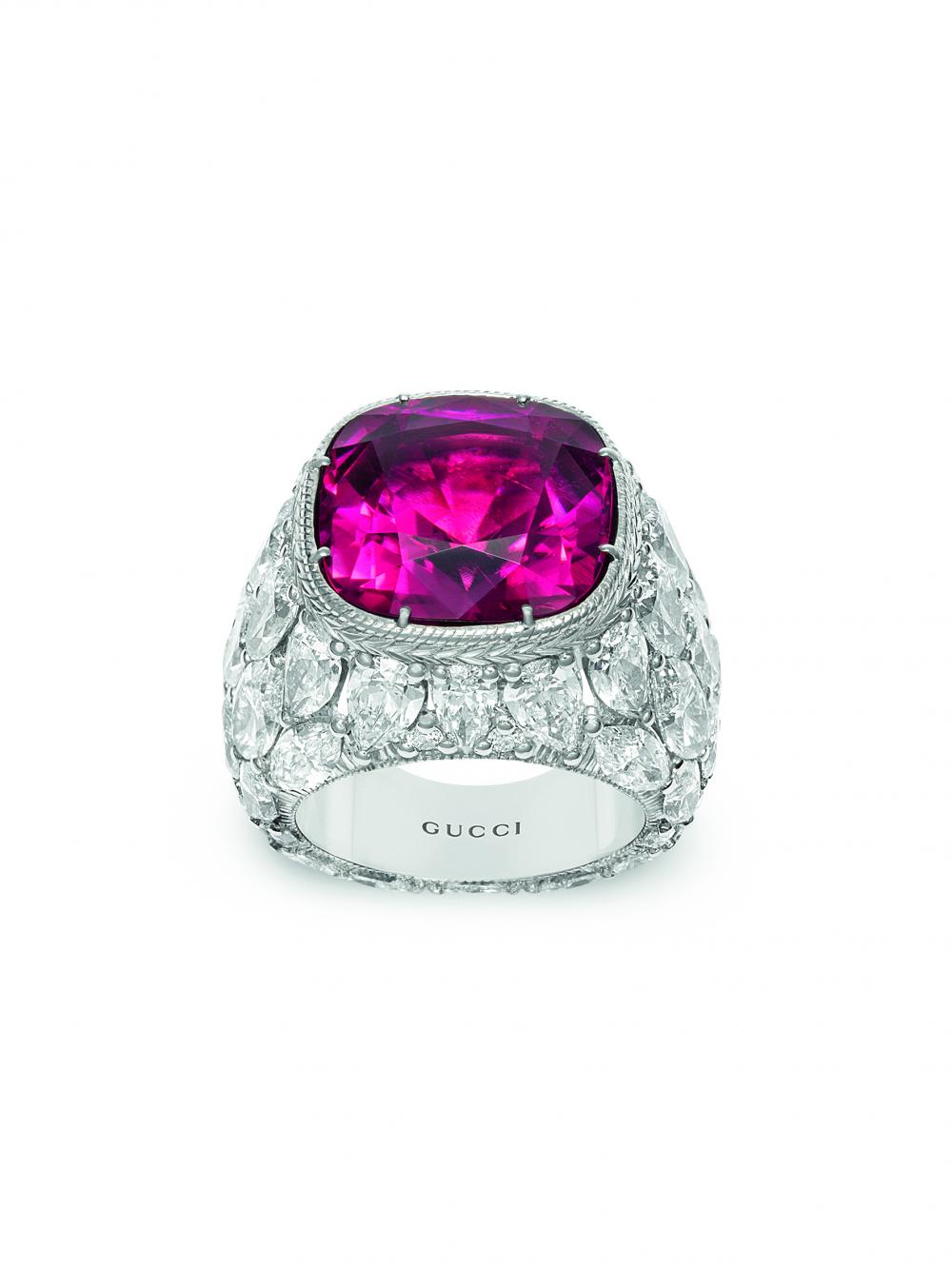Four years after his appointment as Gucci's creative director in 2015, Alessandro Michele imagined high jewellery illuminating the Garden of Delights.

Following two collections, Michele goes back in time for the third act of Hortus Deliciarum, which was recently presented in Bangkok against the splendid backdrop of Sri Sutthaniwart Throne Hall in Phyathai Palace.
Based on five themes, the Hortus Deliciarum collection unfolds like a travel diary, with the "souvenirs" materialising as a form of jewellery and the fantastical journey leaving a "memory of memories".
The creative director chronicles his imaginative odyssey in the Grand Tour, which starts in the mid-19th century and ends in the 1970s.
He was actually born in that tumultuous decade in Rome, whose historical landmarks appear on framed micro-mosaics, which characterise the high jewellery under the first theme.
The unique micro-mosaic pieces, made between 1850 and 1870, bring to this collection their precious nature while depicting the Colosseum, Piazza San Pietro and the Pantheon as it was in the 19th century. In addition, the cameos portray the Roman Forum, Temple of Vesta, Temple of Hercules at Cori, waterfalls at Tivoli and the Pyramid of Cestius.

Michele embeds them in necklaces, bracelets, earrings, brooches, gold pendants holding sparkling peridot, yellow beryl, red and pink spinel, blue topaz, fire opal, pink tourmaline and colourful diamonds.
After Italy, the second theme lands in India, known for iconic gemstones and magnificent jewellery worn by the maharajahs. Gucci's unique pieces are adorned, for instance, with rubellite, imperial topaz, yellow beryl and tourmaline.
Pear or heart-cut stones grace solitaire rings; stones in different colours sparkle on multi-strand necklaces; while woven strands of gold, diamonds and enamel are combined in bracelets.
The third theme revolves around pearl, which according to a Greek myth is born from the foam of the sea and solidified on Aphrodite's skin.
Rich in places like Indonesia, Polynesia and Australia, this symbolism of femininity guides the traveller to the point where East meets West, with myriad historical references such as Botticelli's Birth Of Venus and portraits of Elizabeth I wearing pearl jewellery.
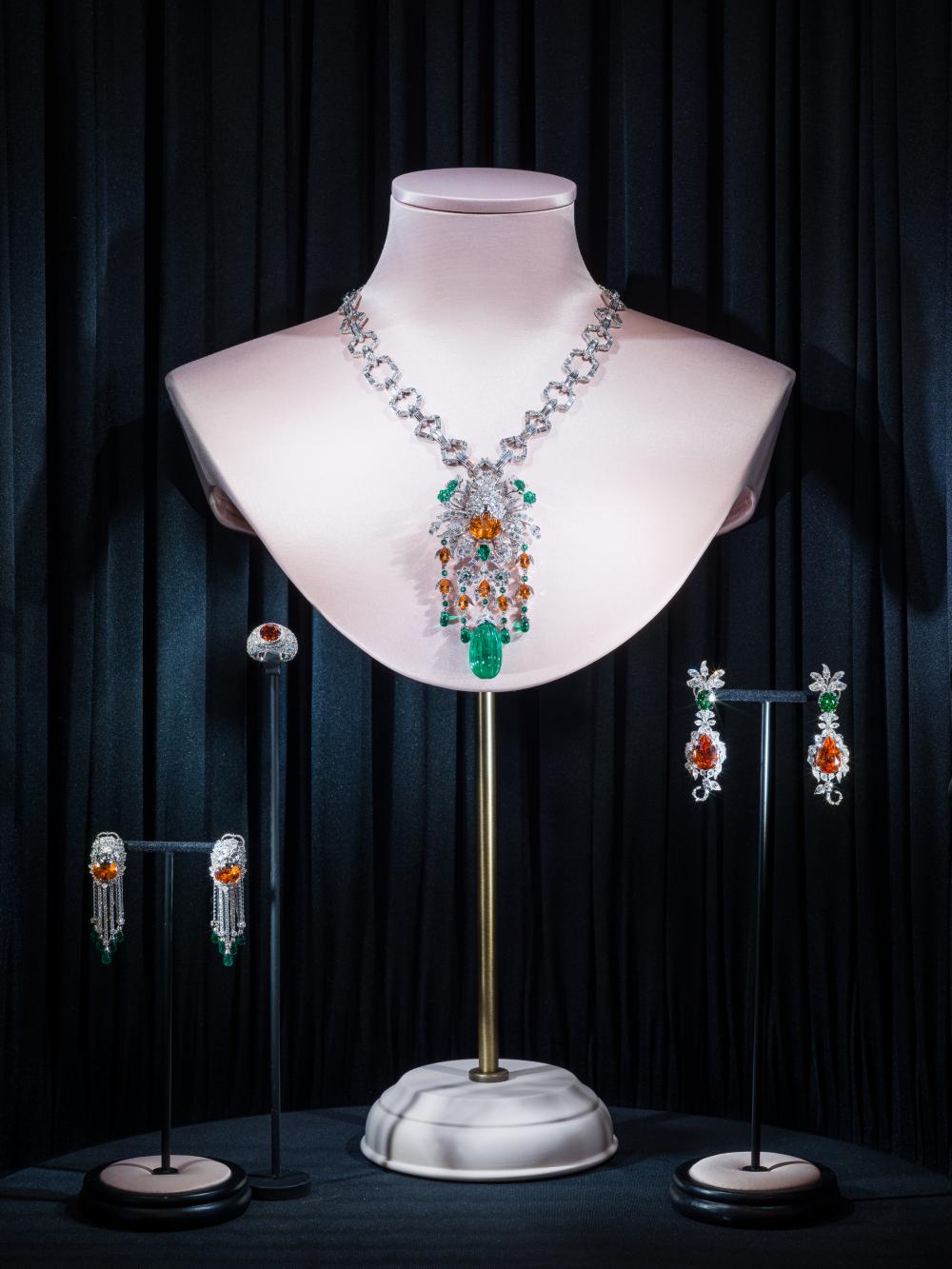
Michele combines white, cream and black pearls with imperial topaz to create sautoirs, paired with earrings and brooches. Detachable pendants also feature imperial topaz or alternating multicolour tourmalines and diamonds.
The fourth stop revisits the New World in the 1930s and 1940s when skyscrapers soared into the sky. The change of pace is illustrated by necklaces and bracelets designed with geometric shapes in chains with asymmetrical, flexible modules, whose meticulous structural details are dramatically corrupted by grandiose stones.
Flexible chains boast amethyst, aquamarine and cushion-cut blue-grey beryl, which also embellish earrings or central pendants set in cages of baguette-cut diamonds.
The travelogue finally reaches the 1970s -- a decade of pop culture, free self-expression and the desire to discover foreign lands.
White gold chain necklaces stand out in psychedelic colours, through talismans in hexagonal emerald, pear-shaped green tourmaline and aquamarine set in a green enamel frame enclosing baguette-cut diamonds.
A pendant with a yellow gold base recalls a scene in the savannah, engraved and enamelled. The design is taken from a 1980s pendant, inspired by the Savana foulard Vittorio Accornero De Testa fashioned for Gucci in 1969.
The one-of-a-kind pieces from the Hortus Deliciarum collection are sustainably made with gold, and certified under the Responsible Jewellery Council Chain of Custody scheme, which makes it possible to identify its origin and ensure ethical sourcing.
